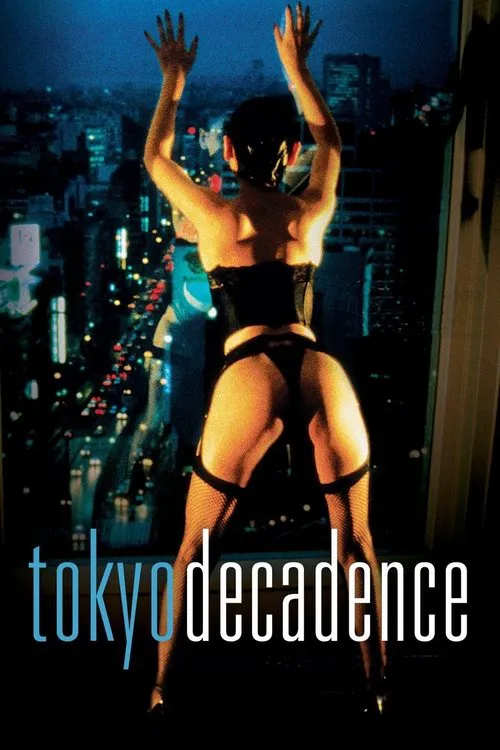Tokyo Decadence

Plot
In the 1990 Japanese film "Tokyo Decadence," director Ryuichi Saiki presents a bleak and unflinching portrayal of the darker side of human nature. Set against the backdrop of Tokyo's vibrant but seedy nightlife, the film delves into the world of prostitution, revealing the harsh realities and the dehumanizing effects it has on its practitioners. The film centers around Naho, a young and vulnerable geisha played by Miyuki Matsuda. Naho is a submissive hooker who has been working on the streets for years, subjected to the lecherous advances and cruel treatment of her clients. These clients range from sleazy Japanese salarymen to ruthless Yakuza gangsters, who view her as nothing more than a commodity to be exploited and discarded. Despite her tough exterior, Naho's world is one of desperation and resignation. She is trapped in a cycle of abuse, forced to endure physical and emotional cruelty from her clients in order to survive. Her days are spent waiting in cramped and dingy establishments for the next man to come along, only to be subjected to degradation and humiliation. Naho's inner turmoil is compounded by the loss of her lover, a man who has moved on and married another woman. This abandonment serves as a poignant reminder of her own worthlessness and powerlessness in society. Her relationship with her lover is portrayed as one of mutual respect and affection, making her current circumstances all the more heartbreaking. Throughout the film, Saiki's direction is marked by a sense of detachment and observational realism. The camera captures the squalid and dehumanizing world of the sex trade with unflinching candor, stripping away any romanticized notions or sensationalism. This unvarnished portrayal serves as a scathing critique of societal attitudes towards women and the exploitation of the vulnerable. As Naho navigates her way through this treacherous landscape, she is forced to confront the harsh realities of her situation. She is a commodity, a body to be bought and sold, and in this world, she is nothing more than a disposable piece of flesh. Her only solace lies in the brief moments of human connection she shares with her fellow sex workers, women who understand her plight and offer a fleeting sense of camaraderie and solidarity. One of the most striking aspects of "Tokyo Decadence" is its rejection of the glamorized tropes surrounding the sex trade. Gone are the fantasies of beautiful women, lavish lifestyles, and seductive charm. In their place is a gritty and unvarnished portrayal of prostitution as a dehumanizing and degrading existence. Saiki's direction is matched by a powerful performance from Miyuki Matsuda, who brings a depth and nuance to the character of Naho that belies the character's fragile and vulnerable nature. Matsuda's portrayal of Naho is a testament to the strength and resilience of women, who in the face of unimaginable cruelty and exploitation continue to survive, to hope, and to hold on to the glimmer of humanity that defines us all. In the end, "Tokyo Decadence" is a searing indictment of societal attitudes towards women, the exploitation of the vulnerable, and the dehumanizing effects of prostitution. It is a testament to the power of cinema to confront and challenge the status quo, to shine a light on the darkest corners of our society, and to humanize the faceless and the forgotten.
Reviews
Recommendations




